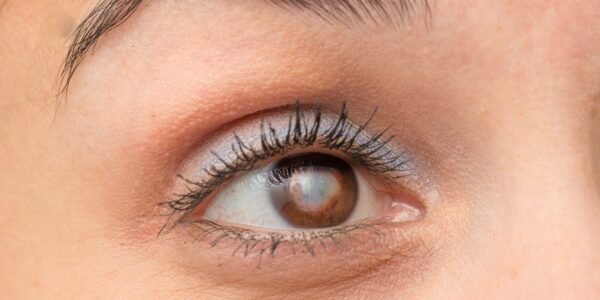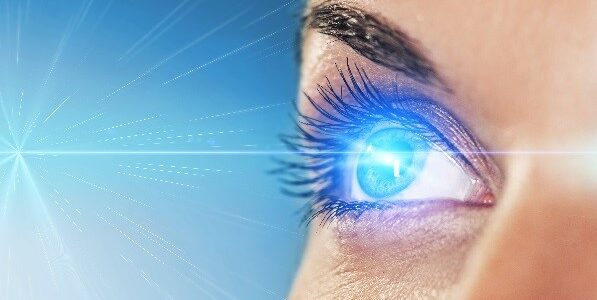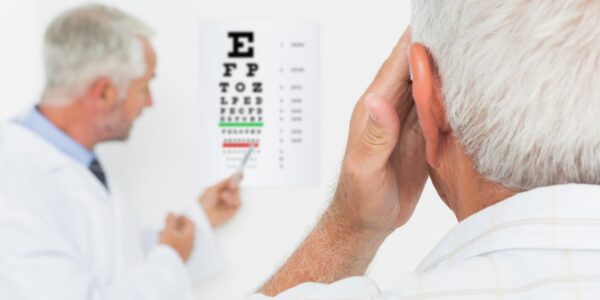People with dry eye have more than itchy, irritated red eyes to worry about. According to a recent study, those with dry eye report an overall lower quality of life. In addition, the group of over 1,000 dry eye patients report that they have difficulty performing everyday tasks and have higher levels of anxiety and worse overall health than individuals without dry eye.
Continue Reading →5 Facts to Know During Cataract Awareness Month
According to the American Academy of Ophthalmology, approximately 25 million Americans have cataracts, which is the clouding of the eye’s naturally clear lens. Over time, the clouded vision caused by cataracts worsens and if left untreated, can lead to blindness.
Continue Reading →Common Eye Conditions Found in People Age 40 and Older
Your vision is an invaluable asset as it directly influences your quality of life. Unfortunately, vision tends to worsen with age and you become more susceptible to certain eye diseases. Below, trusted ophthalmologist and cornea specialist Mark Mandel, MD, discusses common eye diseases found in people age 40 and older.
Continue Reading →Could Cataract Surgery Improve Brain Health?
If you are considering cataract surgery, you are likely aware of the positive effects the surgical procedure can have on your everyday life. By restoring clear vision and sharp focus, cataract surgery can make everyday activities like reading text messages easier, computer work more comfortable and driving safer. Now a recent study has found that cataract surgery may improve mental function.
Continue Reading →What Matters Most When Picking a LASIK Surgeon?
Working with a qualified LASIK surgeon is the best thing you can do to ensure that your laser vision correction procedure is both safe and successful. If you have just begun your search, you may be wondering what one factor matters most when picking your LASIK surgeon. The truth is that there are several factors you need to consider and qualifications your LASIK surgeon must possess.
Continue Reading →What Happens If Cataracts Are Left Untreated?
Currently, no medication or eyedrop has been shown to stop or reverse the formation or cataracts. The only way to treat a cataract is by surgically removing the eye’s natural lens and replacing it with an artificial lens.
Continue Reading →What Can Cause Early Cataracts?
Traditionally, cataracts have been considered a normal part of getting older. With advancing age, the proteins that make up the lens can clump together, creating cloudy areas that dull or blur vision. According to the National Eye Institute, more than half of all Americans have had a cataract or had cataract surgery by the age of 80. However, not all cataracts develop due to age-related changes inside the eye. There are other factors, including lifestyle and environmental factors, that may contribute to the early onset of cataracts. To help shed light on the issue, Mark Mandel, MD, discusses some of the factors that may expedite the formation of cataracts.
Continue Reading →Are Light Eyes More Susceptible to UV Damage?
By now, you’re aware that wearing sunglasses is important to protect your eyes from the sun and harmful ultraviolet rays. But did you know not all eyes are created equal? Factors such as age and even eye color play a part in how much at risk a person is for UV damage. People with light-colored eyes, including hazel, green or blue eyes, are at higher risk for damage and eye diseases tied to UV exposure.
Continue Reading →On-the-Job Benefits of Laser Vision Correction
When you think about the benefits of LASIK and other laser vision correction procedures, you probably imagine simple pleasures, like falling asleep without having to remove your contact lenses, or hugging your kids without worrying about breaking your glasses. Perhaps you think about the ease of exercising or playing sports without the hassle of corrective eyewear.
Continue Reading →What Diabetes Can Do to Your Eyes
Despite the detrimental effect diabetes can have on ocular health, many people with diabetes are unaware of their risk. The American Academy of Ophthalmology recognizes November as “Diabetic Eye Disease Awareness Month” in an effort to familiarize the public with what diabetes can do to the eyes. Mark Mandel, MD, would like to join the AAO’s efforts and help make you aware of what diabetes can do to your eyes.
Continue Reading →Hayward
1237 B Street Hayward, CA 94541
Click map to expand









